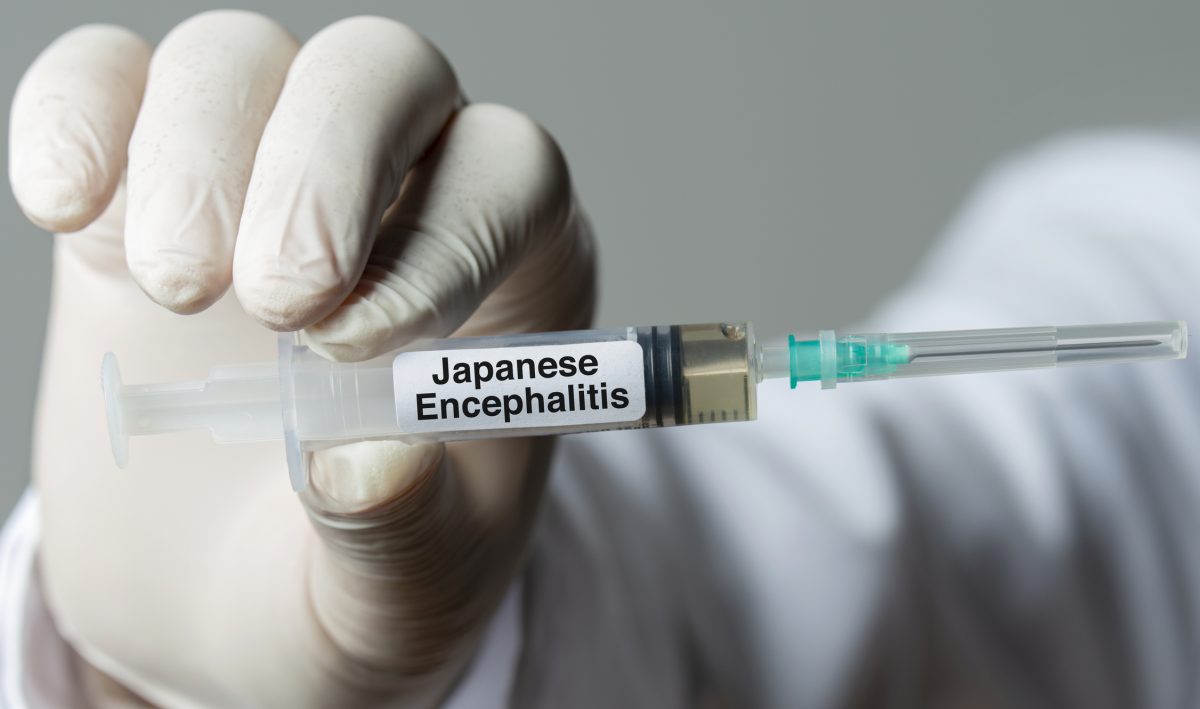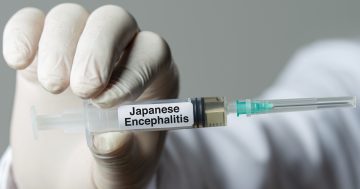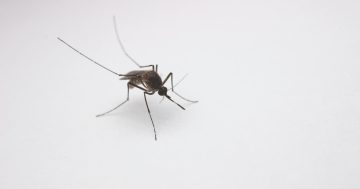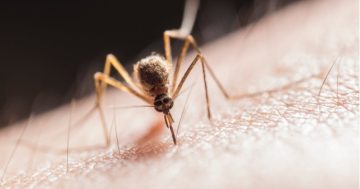
Access to the free Japanese encephalitis vaccine in NSW has been widened. Photo: Kemalbas.
Murrumbidgee Local Health District is expanding free access to the Japanese encephalitis (JE) vaccine for residents to protect those most at risk.
This follows NSW Health’s new seroprevalence survey that revealed one in 11 people showed evidence of a previous infection with JE. Seroprevalence is the level of a pathogen in a population, as measured in blood serum.
The JE vaccine is recommended for individuals who:
- Live or work in any of the following Local Government Areas (LGAs) within the Murrumbidgee Local Health District (MLHD): Albury, Berrigan, Carrathool, Edward River, Federation, Greater Hume, Griffith, Lockhart, Murray River and Temora
- Are aged between 50 and 65
- Are employed in an occupation that is largely or totally outdoors (defined as spending at least four hours a day outside)
- Have direct exposure or close proximity to pigs and mosquitoes
- Work, reside or plan a visit to a piggery, pork abattoir or pork-rendering plant (including but not limited to farm workers and their families and children aged two months and older living at the piggery, transport workers, veterinarians and others involved in the care of pigs)
- Work directly with mosquitoes (environmental health officers and entomologists)
- Have direct exposure or close proximity to pigs and mosquitoes
- Work, reside or plan a visit to a piggery, pork abattoir or pork rendering plant (including but not limited to farm workers and their families and children aged two months and older living at the piggery, transport workers, veterinarians and others involved in the care of pigs)
- Work directly with mosquitoes (environmental health officers and entomologists)
The MLHD said the JE vaccine was available through local general practitioners (GPs) and urged those who meet the above criteria to make an appointment with their GPs.
“Let them (GPs) know it is for the Japanese encephalitis vaccine … they may require a few days’ notice so they can order the vaccine,” the MLHD statement said.
MLHD public health director Tracey Oakman thanked the participants from communities across Griffith and Temora who provided blood samples in the survey. Griffith and Temora were selected on the basis of JE virus activity.
“The results of this serosurvey provide us with valuable insight into the prevalence of past JE infections in these communities after it was first detected earlier this year,” Ms Oakman said.
“Vaccination is an important part of the public health response, but currently, global supply of JE vaccine is very limited.
“So we’re urging people to protect themselves by avoiding mosquito bites altogether, particularly as we head into warmer months.”
MLHD said one person in 11, or 80 in 917 people, showed antibodies indicating past infection with JE virus that would not have been acquired in another country.
JE is a mosquito-borne virus that can be passed to humans and other animals, commonly pigs and water birds. Pigs in particular are considered amplifying hosts associated with transmission to humans.
Infection is usually asymptomatic or associated with mild symptoms in humans but can lead to severe diseases including chronic neurological sequelae or acute encephalitis, which can result in death.
JE is a common infection in the tropical regions of Asia and was detected for the first time in NSW in late February 2022.
Since then, 13 people have been diagnosed with the virus in NSW, two of whom died.
All were estimated to have acquired the virus between mid-January and the end of February.
In line with national reporting structures, NSW Health details any new cases and case locations on its website.
According to Communicable Diseases Network Australia criteria, asymptomatic people found to have JE antibodies through serosurvey studies do not meet the case definition for JE disease, unlike those who were clinically diagnosed.
For further information on JE virus and ways to protect yourself, click here.
















